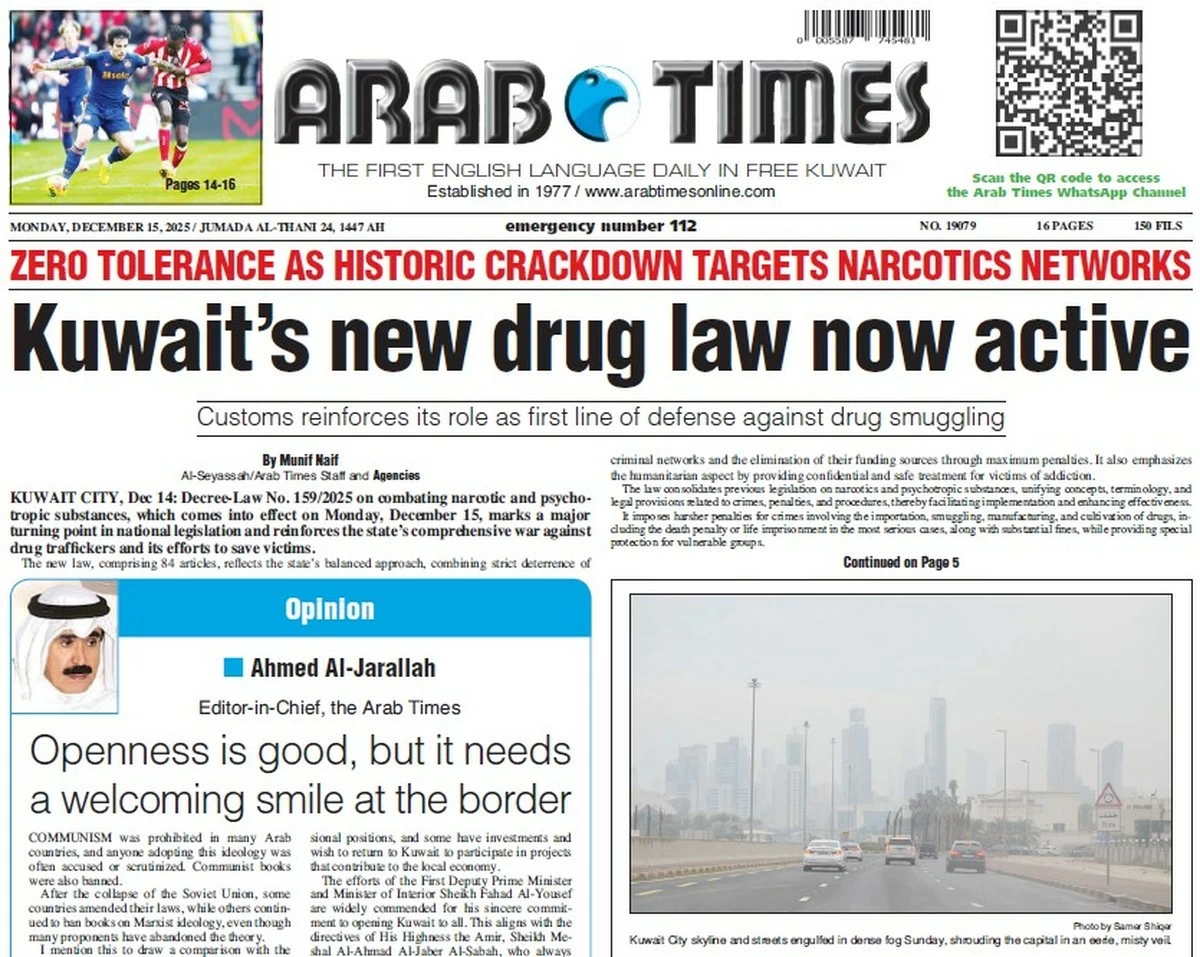17/06/2022
17/06/2022
ONE of the inherited aspects of Arab culture is that the leader should be among his people, and he should follow up their conditions, and work on solving their problems.
However, when he moves away from his people, he is moving away from his authority. His aspirations are then not fulfilled, no matter how useful they are, because he has willingly isolated himself and given way to suppression against anyone who seeks to advise him. He enacts the laws that allow the oppression of every advisor, and that is why dictatorship arises and resentment increases against him.
As for the wise leader, he is the one who takes the opinion of every advisor, and gives insight into what is said to him about the affairs of the public because he seeks to establish justice that provides him with security and safety. This earns him the support of his people in all the actions that he undertakes, because the public is convinced that this is in their interest.
In today’s world, there is no longer anything hidden from people, especially in the era of freedom of opinion and expression, and the right to obtain information, That is why the liberty for media freedom and social communication has hugely grown. Therefore, when the leader isolates himself from his people, he is isolating from himself because the truth is no longer hidden by a smoke screen.
This great development has been met by countries with more flexible legislation, as it is sufficient, for example, that the penalty for what is published on social media is a fine, in the event that the publication infringes the privacy of ordinary people. On the other hand, public figures and workers in public affairs are exposed daily to hundreds of criticism, and no action is taken against those critics.
Unfortunately, in Kuwait, which until recently was considered as an oasis of media freedom in the Arab world and occupies the highest ranks in freedom of the press, a set of laws came to give way to power by exercising a disguised dictatorship, either in the general penal code, publications, communications or electronic crimes, with the latter being the most severe form of suppression of freedom of opinion and expression.
All this legal arsenal included the imprisonment of journalists, publishers, bloggers or social media users. For this reason, the number of sentences issued against users on Twitter has reached more than 600, with about 145 ongoing sentences for long years in prison, including 32 women.
All of them did not hide their names because they were convinced that Kuwait is their homeland that they defend and seek to be the best. On the other hand, no one pursues those who publish under pseudonyms, violate people’s dignity, and defend corruption and the corrupt.
If the authority wants to suppress an honest journalist or blogger, it quickly accuses him of the hollow accusation of “harming the security of the state” or “undermining Kuwait’s relations with its neighbors and friendly countries” in order to practice blackmail of another kind against the blogger, the media outlet, or the journalist.
There is no doubt that the fair and just Kuwaiti judiciary is the bulwark for all of these, as it does justice to them and prevents the injustice of the authority. However, that is not enough, because the one-eyed set of legislation has many loopholes that constitute an explicit obstacle to the judiciary.
Unfortunately, Kuwaiti legislators - most of whom do not seek freedom of information, press and honesty of opinion - have never attempted to abolish these laws just so that they remain a sword hanging over people’s necks.
For this reason and others, Kuwait began to occupy the last ranks in global statistics, such as education, tourism, foreign investments, and freedom of the media, which led people to scream about what it had achieved, because the leader entrusted the matter to unqualified people.
Nonetheless, the wise leader is the one who hears and listens to the voice of his people before the voices of the advisors. When that is met with a solution to people’s problems, they will pray to him for continued health, wellness and stability.
By Ahmed Al-Jarallah
Editor-in-Chief, the Arab Times


